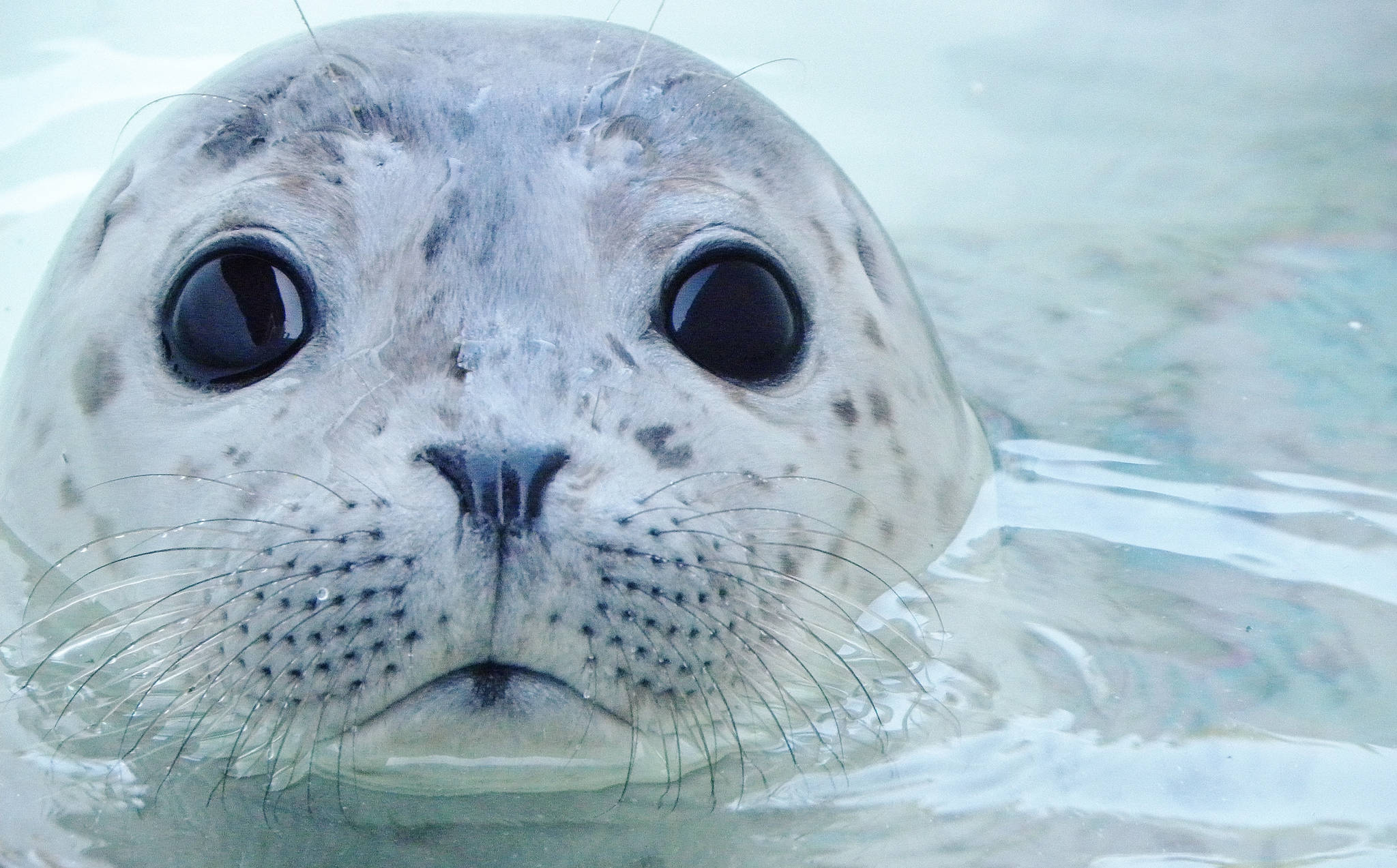Submitted by Wolf Hollow
Resuming rehabilitation for harbor seal pups has been a top priority for Wolf Hollow since the temporary suspension of its marine mammal program in 2016, primarily due to a lack of funding. After many months of diligent work to assess facility needs and raise funds, Wolf Hollow recently announced they will be accepting injured harbor seal pups again this summer. Historically, facility and rehabilitation costs (an average of $40k per year) have been largely funded by NOAA’s John H. Prescott Marine Mammal Rescue Grant. As with any grant program, funding is not guaranteed. In 2015 and 16, Wolf Hollow’s proposals were not selected for funding. There were also some facility items to address to get back up and running.
“It wasn’t an easy hurdle to clear, but we had a lot of help,” said Amy Saxe-Eyler, Wolf Hollow’s executive director. “By the end of March, we reached our goal to obtain enough private donations to prepare our facilities and feel comfortable about committing to resuming our program this summer. We’re so grateful for the support we’ve received from our donors, volunteers and marine mammal community partners like the San Juan and Whatcom County Marine Mammal Stranding Networks, NOAA and other state wildlife facilities. This is a strong network of people committed to the health of the animals.”
In the face of uncertainty about future federal funding, efforts to sustain marine mammal rehabilitation at the center are ongoing. Wolf Hollow will continue to apply for Prescott funding, but will also pursue alternative financial support to sustain the program for years to come. Saxe-Eyler continued, “Obviously, the absolute best scenario is for pups to be with their mothers. We will always provide public education in an attempt to offset the negative effects of human activity on wildlife. It’s also important to us to provide injured seal pups a place to go for care – especially since the capacity was so limited without Wolf Hollow in 2016. We’ll continue to collaborate with NOAA and the regional marine mammal response community to figure out how Wolf Hollow can best meet the needs of these animals in the future.”
For more information or to make a donation to support marine mammal rehabilitation, you can visit wolfhollowwildilfe.org or contact Amy Saxe-Eyler at aseyler@wolfhollowwildife.org. To learn more about ways to minimize your impact on marine mammals, see NOAA’s Share the Shore campaign at www.westcoast.fisheries.noaa.gov.



